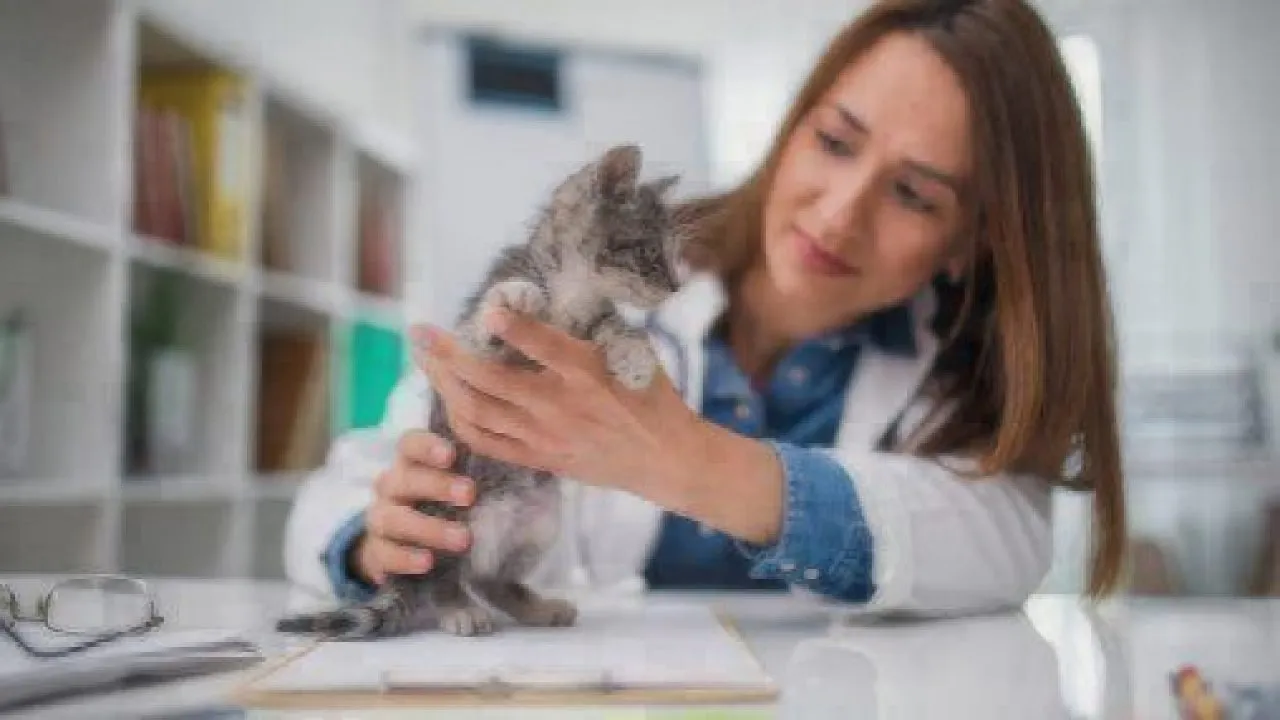Key Takeaways
- Heartworm is more common in dogs, but cats can also be affected.
- Heartworm symptoms include coughing, rapid breathing, and convulsions.
- A vet may recommend prednisone for inflammation, but there is no drug to treat heartworm in cats.
- You can prevent feline heartworm with oral and topical preventative medications.
- Humans can’t contract heartworms from their cats.
Table of Contents
Heartworms are parasites that cause a progressive and potentially fatal illness that damages the lungs, heart and arteries of cats and dogs. Heartworms, which can grow to more than a foot long, enter a cat’s body via a mosquito bite. Mosquitoes pick up the heartworm larvae when they bite infected dogs, coyotes, wolves, foxes, or even sea lions, and then pass them along to another animal.
Cats aren’t considered to be good hosts for heartworms because most worms don’t survive to the adult stage in cats as they do in dogs, but cats are still at risk for heartworm disease.
The American Heartworm Society says the term “heartworm” is a misnomer because the disease mostly affects the lungs and not only the heart. Veterinary scientists have coined the term “Heartworm Associated Respiratory Disease,” or HARD, to describe the inflammatory response that occurs when the adult heartworms die.
Not all cats show signs of heartworm disease, but respiratory problems are the most common symptoms due to lung damage.
Symptoms
- Coughing and gagging
- Rapid and difficult breathing
- Intermittent vomiting
- Lack of appetite
- Lethargy
- Weight loss
- Diarrhea
- Fainting
- Blindness
- Convulsions
The AHS says unfortunately, in some cases the first sign of heartworm disease in cats is collapse or even death.
Because they are less likely to be carrying adult heartworms, it’s more difficult to detect heartworm disease in cats. To determine if your cat has heartworm disease, your veterinarian will perform blood tests, x-rays, and an ultrasound of the heart.
Treatment
Unfortunately, there is no drug therapy to treat heartworm infection in cats, but symptoms may be managed with medication, and in some cases the infection may clear on its own. If worms have been detected in your cat but she isn’t showing signs of distress, she may need to undergo periodic chest x-rays to monitor her infection status. Prednisone can be administered to help ease inflammation. If the disease is severe your cat may need to be hospitalized.
Preventative Measures
Though mosquitos carrying heartworms are especially prevalent in coastal areas throughout the Southwest and Gulf area, heartworm disease has been diagnosed in all 50 states. The AHS says environmental changes have increased heartworm infection potential, and infected pets transferred to previously uninfected areas contribute to the spread of heartworm disease. In 2005, more than 200,000 pets displaced by Hurricane Katrina were shipped across the country. An estimated 60 percent were infested with heartworms.
Because there is no treatment available for heartworm infection in cats, prevention is crucial. Monthly, year-round heartworm prevention is recommended via an oral or topical treatment. Topical preventives such as Revolution provide protection from heartworm disease as well as fleas, round worms, hookworms and ear mites. Preventives can be started in kittens at 8 weeks. And even if your cat is indoor only, she should be treated because all it takes is one mosquito bite to infect her. The AHS points out that one in four cats diagnosed with heartworm disease is indoor only.
Heartworms can only be transmitted is through the bite of an infected mosquito, so pets and humans can’t pass them between each other.
By enrolling your cat early, conditions and illnesses like parasite infection treatments will be covered up to 90% by your Healthy Paws pet insurance. Find out more by getting a free quote.
The content is not intended to be a substitute for professional veterinarian advice, diagnosis, or treatment. Always seek the advice of your veterinarian or other qualified health provider with any questions you may have regarding a medical diagnosis, condition, or treatment options.








